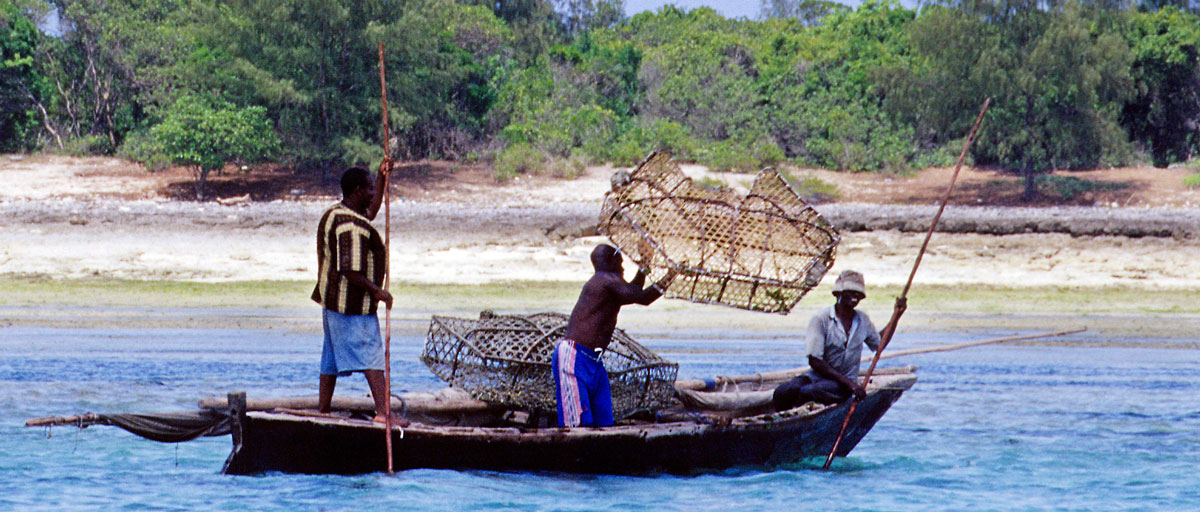
Coral reef fish is an important food source and income for coastal populations, but overfishing has affected critical ecosystems. This overfishing is not just the fishers' fault, but also the market demanding the fish, a new study shows. Photo: J. Lokrantz/Azote
Coral reef fishing
Don't blame the fishers
Market agents wield great influence over fishers' activities
- Study in Marine Policy has identified the socio-economic drivers behind the exploitation of the fish
- The authors conducted 188 interviews with different stakeholders
- The authors conclude that with so much influence wielded by the market and few other livelihood alternatives are available for the fishers, blaming the latter group entirely for overfishing is unfair
Coral reef fish is not only crucial for the production of ecosystem services on coral reefs, they are also an important food source for coastal societies.
A recent study in Marine Policy has identified the socio-economic drivers behind the exploitation of the fish. They study examined the value chain of reef fish and how it links to maturity of the fish and to functional groups.
Clownfish, not only funny
Reef fish perform important functions that underpin the resilience in coral reefs. To study the link between ecosystem processes, fisheries and trade, the fish was assigned into functional groups, based on what work they perform on the reefs. These groups include for example piscivorous fish, which are fish that eat other fish, and herbivorous fish that graze algae and other aquatic plants.
The trade with reef fish involves many different agents, hotels and the tourist industry as well as middlemen and local consumers. The authors conducted 188 interviews with these different agents as well as with fishers, and used participatory observation in markets and on landing sites.
"We found that the market agents trade all fish irrespective of size and age. There is no refuge for the fish"
Magnus Nyström, co-author
Where will Nemo end up?
The functional groups and the size of the fish seem to be determinant of where the fish will end up. Piscivorous and larger fish fetch a higher price and are likely to end up in town markets or hotels. Herbivorous and smaller fish are cheaper and end up on the plates of local consumers.
"It is difficult to say whether the choice of smaller size fish by women with low income is indeed a choice, or if it is rather that they buy what they can and are unable to compete with the offers from larger actors such as hotels," says co-author Maricela de la Torre-Castro.
"Either way, the consequence is that many species of reef fish have a market value and specific use within the setting, regardless of size."
Finding Nemo
The authors conclude that with so much influence wielded by the market and few other livelihood alternatives are available for the fishers, blaming the latter group entirely for overfishing is unfair.
"Management measures should include all agents in the value chain, and their links to ecosystem processes. To engage in trade policies and consumer choice, acknowledging how these affect the fisheries and in turn ecosystem dynamics, will be important for reaching the sustainable fisheries targets," concludes Beatrice Crona, co-author of the study.






